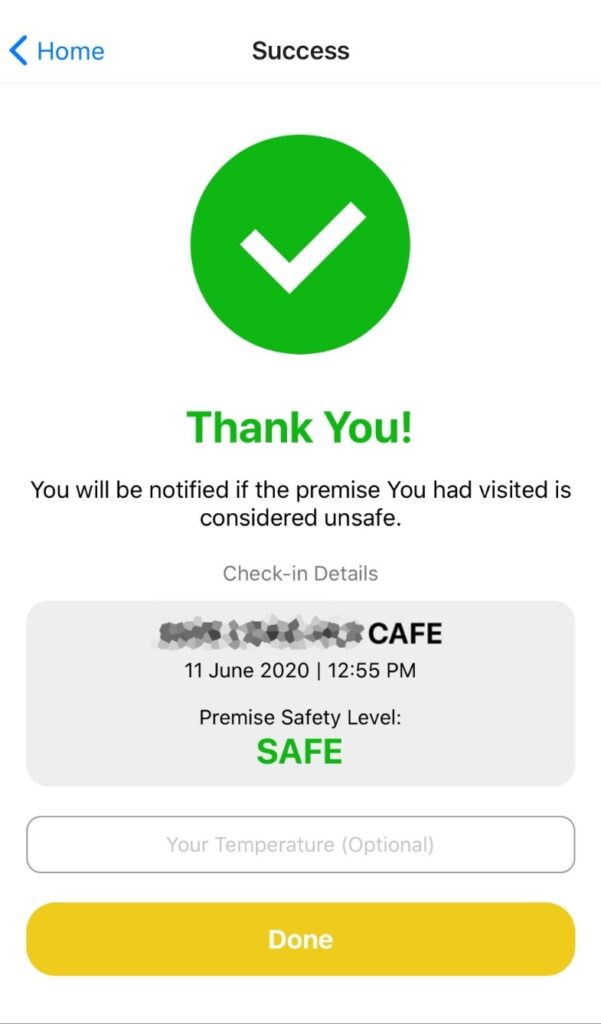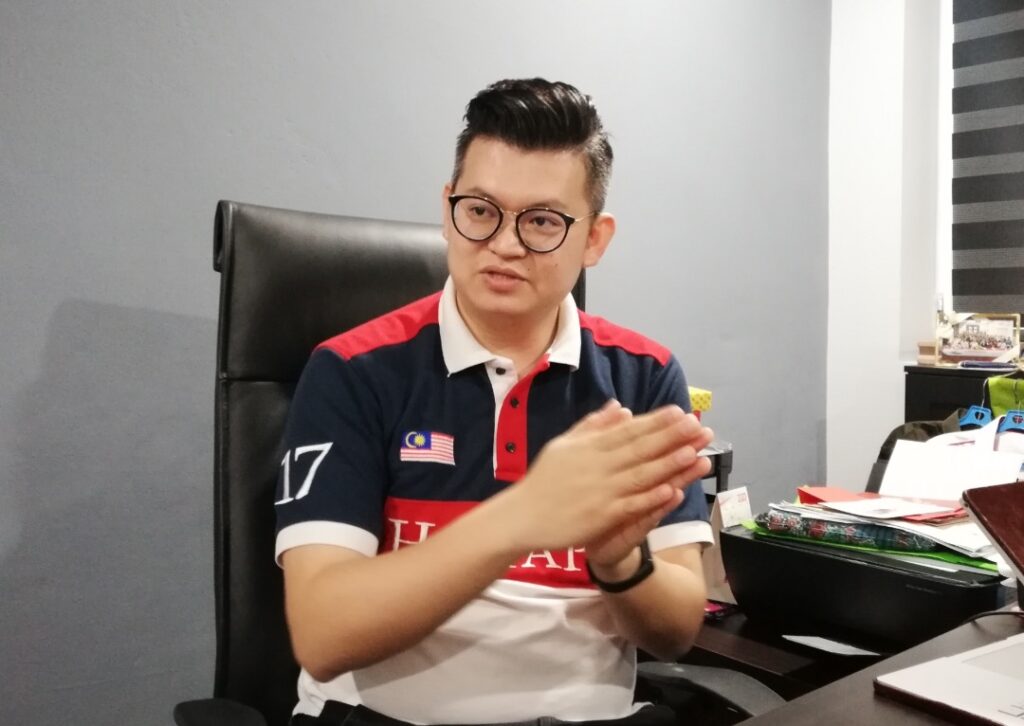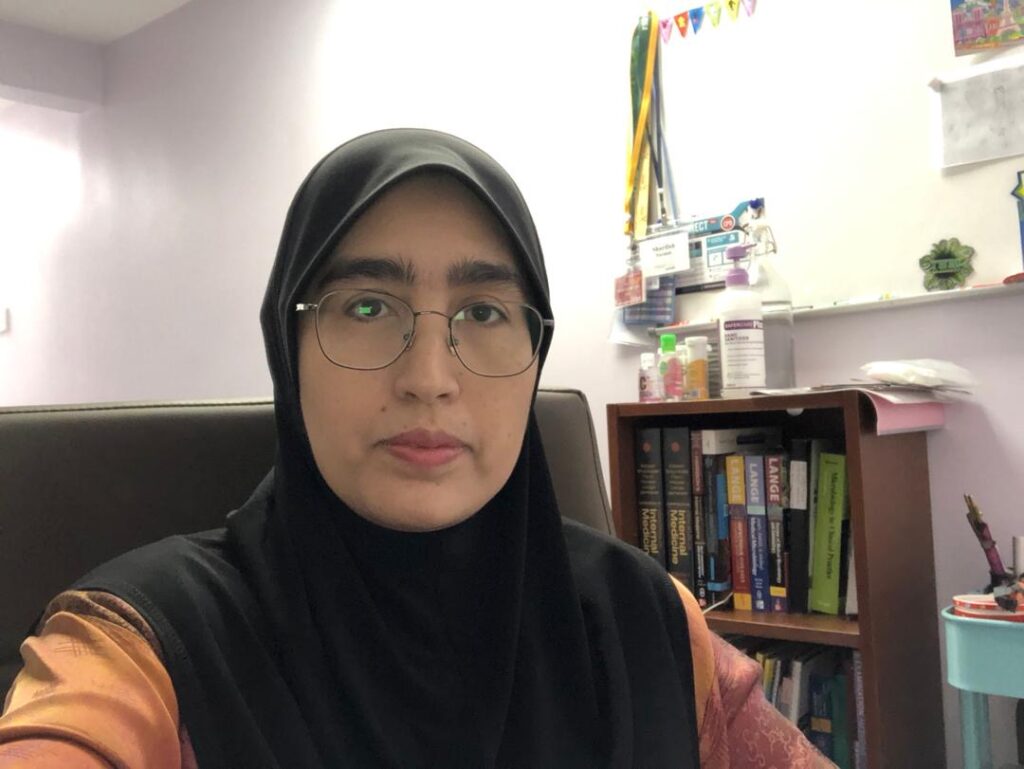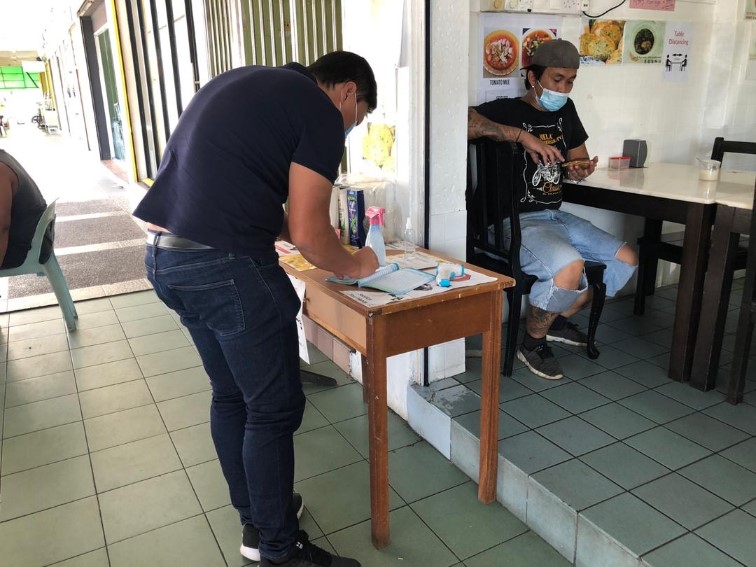KUCHING, June 15 — The government’s tech-driven effort to curb Covid-19 outbreaks may hit a snag as many Sarawakian businesses have avoided using the state’s Qmunity contact-tracing app.
A local business owner said Qmunity, which was recently rolled out by the Sarawak state government, may cause discrimination against businesses as the mobile app marks premises as “safe” or “unsafe”, even as businesses nationwide are struggling during the pandemic.
“It may negatively affect us if, God forbid, our business is marked ‘unsafe’, until us business owners are properly briefed on how this classification (‘safe’ vs ‘unsafe’) came about.
“It’s also going to deter a lot of other business owners from using this system as well due to the negative impact,” a retail business owner in central Kuching told CodeBlue in an interview on condition of anonymity.
CodeBlue found from observation between June 8 and June 11 that out of 13 business premises in Kuching visited — including restaurants, cafes, groceries stores, a pharmacy, and shops in malls — only four utilised the Qmunity QR codes.
Businesses sign up with the government to get the Qmunity QR code, while customers must download Qmunity in order to scan the app’s QR code when visiting business premises. Individuals are required to provide their name, identity card number, and phone number when downloading Qmunity.

A fear of public shunning and discrimination was expressed by the retail business owner interviewed, stating there might be lingering negative perceptions that it continues to be dangerous to visit a business premise that was once marked “unsafe”, but has since retrieved its “safe” status.
“The public might have a perception that it is unsafe to shop here despite us following and obeying and adhering to all SOPs (standard operating procedures).
“Customers may continue to have a negative perception that it is unsafe to shop here even after being cleared of being ‘unsafe’,” the retail business owner said.
The retail business owner interviewed also explained that what is done with the data collected through the Qmunity app is unknown to stakeholders, and that customers’ privacy should be respected.
“The government should be more transparent on how the data is stored instead of having people going through the terms and conditions. Educate the public and educate businesses on how the classifications work, and if it is marked ‘unsafe’, how does it go from ‘unsafe’ to ‘safe’ again,” the retail business owner said.

Bandar Kuching MP Dr Kelvin Yii told CodeBlue in an interview that his general observation in the city found some businesses have opted not to use the Qmunity app, although he is unsure of the reason why.
“I have heard of some feedback that businesses are afraid of some form of discrimination if news of any positive Covid-19 cases are reported within their premises and even vicinity. Due to this fear of stigma, many may have reservations about signing up for Qmunity and other QR codes apps for the fear of being marked ‘unsafe’ and subsequently losing business,” he said.
“Some of the concerns are understandable, and that is why stigma and discrimination does not help and sends the wrong message in this situation, including ‘punishing’ those that get the disease or even get contact to a carrier of the virus.”
Dr Kelvin Yii, Member of Parliament for Bandar Kuching
“Because of that, the benefit that such a contact-tracing app can bring may be disrupted due to stigma or negative connotation attached to it,” Dr Yii added.
The DAP lawmaker also pointed out that stigma and discrimination lead to harmful rumours and those on the receiving end — including individuals, family, and even businesses — ultimately suffer losses that are uncalled for.
“While there are legitimate cyber-security concerns of such contact-tracing apps and such concerns need to be properly addressed, issues of stigma that may hinder the usage of such apps should be properly dealt with through better understanding of the disease and more importantly, empathy for one another,” he concluded.
The South Kuching City Council (MBKS) technical support team, as of June 11 at 6:31pm, reported a total of 3,482 premises that were registered with Qmunity throughout the entire state of Sarawak, and a total number of 213,908 users.
New Sarawak Tribune reported that Sarawak had registered up to 50,000 small and medium enterprises (SME) by the end of 2016. The Department of Statistics Malaysia reported an estimated population of 2.81 million in Sarawak last year.
Besides QMunity, the Sarawak state government has released another contact-tracing app called COVIDTrace that can be used to record visits to business premises, and also record people’s face-to-face encounters through Bluetooth on their phones. The federal government and Selangor state government has released the MySejahtera and SELangkah mobile contact-tracing apps respectively for individuals checking in at business premises.
Covid-19 Seen As Almost Like A Plague

Dr Yii, who is an ex-Covid-19 patient himself, also shared with CodeBlue his personal experience with discrimination after his diagnosis, and that discrimination even extended to his family and close friends.
“I definitely experienced (discrimination) especially at the beginning and it wasn’t just limited to me, but also my family and the ones that are closest to me. Harsh things, blame, and even untrue rumours were said to me and my family during that initial period,” he said.
Dr Yii tested positive for Covid-19 on March 16 and was admitted into Sarawak General Hospital on the same day. He was asymptomatic throughout his recovery.
Prof Dr Sharifah Faridah Syed Omar, an infectious disease expert from the Faculty of Medicine at Universiti Malaya, told CodeBlue in an interview that discrimination from Covid-19 is two-fold: those who contract the coronavirus, and those who came into contact with positive cases.
She provided an example of Covid-19 stigmatisation experienced by a health care worker (HCW) at Universiti Malaya Medical Centre (UMMC), who contracted the coronavirus after coming into contact with another Covid-19-positive person, and subsequently transmitted the disease to most of her family members who lived in the same residence.
“We had a HCW who was positive and unfortunately, because of her living condition that is basically in a very small house with more than seven people living in there, and out of the seven people that lived there, five became positive,” said Dr Sharifah, adding that the HCW also suffered a great sense of guilt for transmitting the coronavirus to her family members.
“The worst part was when we met the whole family, they (shared that they) were badly discriminated against and also stigmatised in their housing area. It was seen as almost like a plague.
“People were afraid of them, people don’t want to get into a lift with them, just no support whatsoever.”








